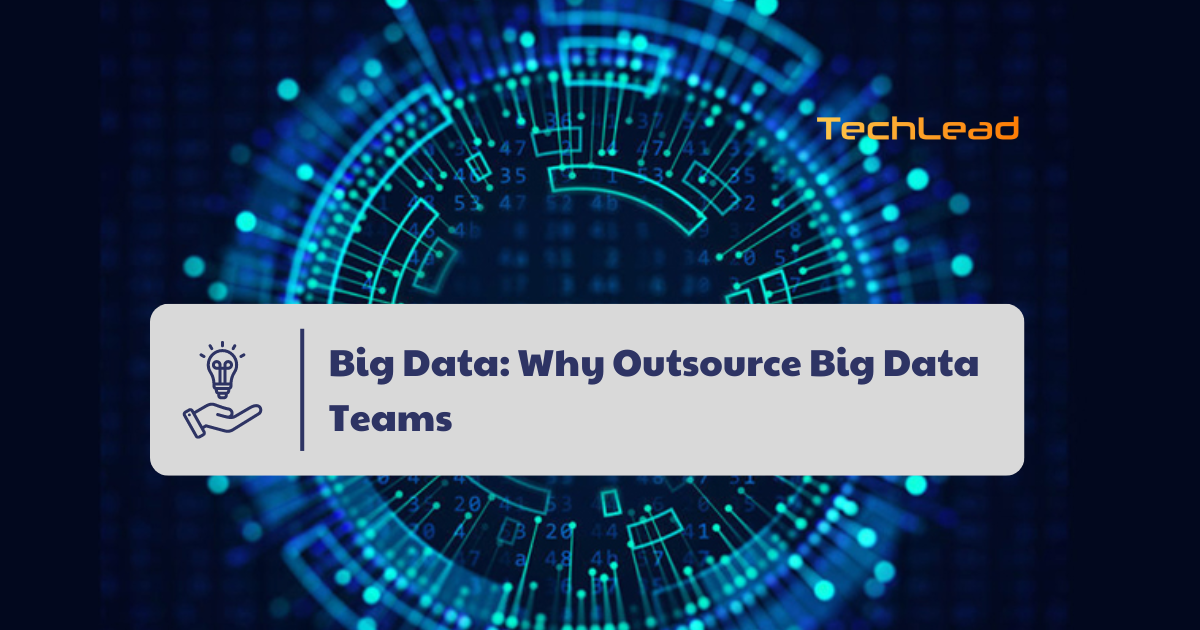In today’s business landscape, big data is crucial for decision-making and efficiency, despite the challenges in managing it. The insights derived improve decision-making and competitiveness, making outsourcing big data analytics to specialized teams highly beneficial.
Definition and meaning of Big Data
1. Definition and Significance of Big Data
Big Data refers to vast volumes of structured, semi-structured, and unstructured data that inundate businesses on a daily basis. This term encompasses the sheer scale of data generated from various sources, including social media, sensors, mobile devices, and more. The significance of Big Data lies in its potential to uncover hidden patterns, correlations, and insights that traditional data processing methods cannot handle efficiently.
Key Characteristics of Big Data
Several key characteristics distinguish Big Data:
- Volume: Big Data involves enormous quantities of data, often ranging from terabytes to petabytes and beyond. This volume challenges traditional data storage and processing capabilities.
- Velocity: Data streams in at unprecedented speeds. Real-time or near-real-time data processing is crucial for extracting timely insights and making informed decisions.
- Variety: Data comes in diverse formats, including structured data (like databases), semi-structured data (like XML files), and unstructured data (like text, images, and videos). Managing and analyzing this variety is a significant challenge.
- Veracity: Refers to the reliability and accuracy of the data. Big Data often includes noisy, incomplete, or inconsistent data, requiring careful validation and cleaning.
- Value: Extracting value from Big Data involves transforming data into actionable insights that drive business decisions, enhance operational efficiency, and improve customer experiences.
2. Development and Trends of Big Data in the Digital Age
In the digital age, the growth of Big Data has been exponential. With the proliferation of internet-connected devices, the Internet of Things (IoT), and social media platforms, data generation has skyrocketed. Organizations across industries are leveraging advanced analytics, machine learning, and artificial intelligence (AI) to derive insights from Big Data.
3. Role of Big Data in Decision-Making and Business Strategy
Big Data plays a pivotal role in modern decision-making and business strategy:
- Data-Driven Decisions: By analyzing vast datasets, organizations can make data-driven decisions that are based on empirical evidence rather than intuition alone. This approach enhances accuracy and reduces risks associated with uncertainty.
- Customer Insights: Big Data analytics enables businesses to gain deep insights into customer preferences, behaviors, and sentiment. This understanding empowers personalized marketing strategies and improves customer satisfaction.
- Operational Efficiency: Through predictive analytics and optimization algorithms, Big Data helps streamline operations, optimize supply chains, and reduce costs.
- Innovation and Competitive Advantage: Organizations that harness Big Data effectively can innovate faster, develop new products and services, and gain a competitive edge in the market.
In conclusion, Big Data represents a paradigm shift in how organizations collect, manage, and analyze data. It transcends mere volume to encompass velocity, variety, veracity, and value, driving strategic decisions and fostering innovation in the digital era.
Reasons to Outsource Big Data Teams
In today’s data-driven world, organizations are amassing vast troves of information, often referred to as Big Data. This deluge of data presents both challenges and opportunities. While Big Data holds immense potential for unlocking valuable insights and driving business growth, extracting meaningful patterns and actionable intelligence from these complex datasets can be a daunting task. This is where Big Data outsourcing emerges as a strategic solution, empowering businesses to harness the power of Big Data without overburdening their internal resources.
1. Cost Reduction and Internal Resource Optimization
Embarking on a Big Data initiative can be a significant financial investment. By outsourcing Big Data, businesses can effectively reduce upfront costs associated with hiring and training specialized data scientists, acquiring expensive hardware and software infrastructure, and establishing dedicated data centers. Additionally, outsourcing eliminates the need for ongoing maintenance and upgrades, further streamlining operational expenses.
Moreover, Big Data outsourcing allows businesses to optimize their internal resources, enabling them to focus on their core competencies and strategic priorities. Instead of diverting valuable in-house talent to manage Big Data complexities, businesses can leverage the expertise of external specialists, ensuring that their own teams remain focused on driving innovation and growth.
2.Accessing High-Specialized Expertise and Deep Analytical Capabilities
Big Data analytics demands a deep understanding of complex data mining techniques, advanced statistical modeling, and specialized programming languages. Building an in-house team with such expertise can be challenging and time-consuming. Big Data outsourcing provides immediate access to a pool of highly specialized professionals who possess the requisite skills and experience to tackle even the most intricate Big Data challenges.
These experts bring with them a wealth of domain-specific knowledge and industry insights, ensuring that Big Data analytics are tailored to the unique needs and objectives of the business. They can effectively navigate the complexities of Big Data ecosystems, ensuring that data is accurately extracted, transformed, and analyzed to generate actionable insights.
3.Rapid Response and Flexibility in Addressing Evolving Data Analytics Needs
The business landscape is constantly evolving, and with it, the demands for Big Data analytics. Big Data outsourcing offers the agility and flexibility required to adapt to these changing needs. Businesses can quickly scale their Big Data capabilities up or down as required, without the constraints of fixed internal resource allocation.
Outsourcing partners can provide on-demand expertise to address specific projects or initiatives, ensuring that businesses have the right talent at the right time. This scalability and flexibility empowers businesses to respond promptly to emerging trends, market shifts, and competitive pressures, driving innovation and maintaining a competitive edge.
In conclusion, Big Data outsourcing presents a compelling solution for businesses seeking to harness the power of Big Data while optimizing costs, accessing specialized expertise, and maintaining agility in a dynamic business environment. By partnering with experienced Big Data outsourcing providers, organizations can transform their data into actionable insights, driving informed decision-making, enhancing operational efficiency, and propelling business growth.
Benefits of outsourcing big data team
1. Leveraging the Expertise of Experienced Big Data Professionals
At the heart of successful Big Data outsourcing lies the expertise of the outsourced team. Businesses that partner with reputable Big Data outsourcing providers gain access to a pool of experienced data professionals who possess in-depth knowledge of Big Data technologies, methodologies, and best practices. These experts bring with them a proven track record of success in extracting valuable insights from complex datasets, enabling businesses to make informed decisions that drive growth and competitive advantage.
Specialized Data Scientists: Big Data outsourcing provides access to specialized data scientists who are well-versed in advanced data mining techniques, statistical modeling, and machine learning algorithms. These experts can effectively navigate the intricacies of Big Data ecosystems, ensuring data quality, accuracy, and consistency. They can transform raw data into meaningful insights, uncovering hidden patterns, trends, and correlations that would otherwise remain buried within the vast troves of information.
Domain Knowledge and Industry Expertise: Experienced Big Data professionals bring with them domain-specific knowledge and industry insights, ensuring that Big Data analytics are tailored to the unique needs and objectives of the business. They understand the nuances of the industry landscape, the competitive environment, and the specific challenges faced by the organization. This contextual understanding enables them to derive actionable insights that address real-world business problems and drive tangible outcomes.
2.Utilizing Advanced Technologies and Powerful Analytical Tools
Big Data outsourcing empowers businesses to leverage the latest advanced technologies and powerful analytical tools to gain deeper insights from their data. Outsourcing partners invest heavily in cutting-edge Big Data platforms, infrastructure, and software solutions, ensuring that businesses have access to the most sophisticated tools available.
State-of-the-Art Big Data Platforms: Businesses that outsource Big Data projects gain access to state-of-the-art Big Data platforms that can handle the immense volume, velocity, and variety of Big Data. These platforms provide the scalability, flexibility, and performance required to efficiently process, analyze, and store vast amounts of data.
Advanced Analytical Tools and Techniques: Outsourcing partners employ a wide range of advanced analytical tools and techniques, including machine learning algorithms, predictive modeling, and statistical analysis software. These tools enable businesses to extract meaningful insights from complex and unstructured data, uncovering hidden patterns, trends, and correlations that would otherwise remain hidden.
3.Enhancing Predictive Capabilities and Market Trend Analysis
Big Data outsourcing not only provides businesses with historical insights but also empowers them to enhance their predictive capabilities and gain a deeper understanding of market trends. By leveraging advanced analytics and machine learning techniques, businesses can forecast future trends, anticipate market shifts, and make informed decisions that position them for success in a dynamic and competitive landscape.
Predictive Analytics: Big Data outsourcing enables businesses to develop predictive analytics models that can forecast future events, customer behavior, and market trends. These models can be used to optimize marketing campaigns, improve supply chain management, and reduce operational risks.
Market Trend Analysis: Businesses can gain a deeper understanding of market trends by analyzing vast amounts of data from various sources, such as social media, customer interactions, and industry reports. This insights can inform product development, pricing strategies, and customer engagement initiatives.
In conclusion, Big Data outsourcing offers a compelling solution for businesses seeking to leverage the power of Big Data while optimizing costs, accessing specialized expertise, and maintaining agility in a dynamic business environment. By partnering with experienced Big Data outsourcing providers, organizations can transform their data into actionable insights, driving informed decision-making, enhancing operational efficiency, and propelling business growth.
Factors to consider when choosing a large data pool
As organizations embark on their Big Data journeys, selecting the right partner to navigate this complex landscape is crucial for success. With a multitude of Big Data service providers vying for attention, making an informed decision requires careful consideration of several key factors.
1. Expertise and Proven Track Record
When entrusting an organization’s valuable data to an external partner, experience and a proven track record are paramount. Seek out Big Data providers with a demonstrated history of success in delivering impactful solutions for businesses in your industry. Evaluate their expertise in handling similar data volumes, types, and complexities.
Inquire about their specific project experiences, delving into the details of their methodologies, tools, and technologies employed. Engage with references to gain insights into their work ethic, communication style, and ability to meet or exceed expectations.
2.Comprehensive Service Portfolio and Tailored Solutions
Big Data needs are as diverse as the organizations that generate them. A comprehensive service portfolio ensures that your chosen partner can cater to the full spectrum of your Big Data requirements, from data collection and integration to analysis, visualization, and reporting.
Assess the provider’s ability to tailor their solutions to your unique business challenges and objectives. Explore their expertise in specific Big Data technologies and frameworks, ensuring alignment with your existing infrastructure and data management strategies.
3.Data Security and Regulatory Compliance
Data security is not an afterthought; it’s a fundamental aspect of Big Data partnerships. Ensure that the provider prioritizes data confidentiality, integrity, and availability. Evaluate their security protocols, data encryption practices, and incident response plans.
Verify their compliance with relevant industry regulations and data privacy laws, such as GDPR, CCPA, and HIPAA. Understand their data governance frameworks and procedures for data access, storage, and disposal.
In addition to these critical considerations, it’s essential to establish clear communication channels, define service-level agreements, and negotiate pricing models that align with your budgetary constraints. By carefully evaluating these factors, organizations can make informed decisions that will empower their Big Data initiatives to thrive.
Conclusion
In conclusion, outsourcing big data teams offers businesses access to specialized expertise and advanced analytical capabilities, crucial for leveraging big data’s potential. By outsourcing, organizations can reduce operational costs associated with maintaining in-house teams while gaining flexibility to scale resources based on project needs. Moreover, external teams bring in-depth knowledge of cutting-edge technologies and best practices in data analysis, enhancing predictive modeling and market trend forecasting. This strategic approach not only optimizes management processes but also enhances overall operational efficiency. Therefore, businesses are encouraged to explore and implement big data solutions to stay agile and responsive in today’s rapidly evolving market landscape
Please contact TechLead so we can support you in Software Development to create the best solutions!
TechLead leading technology solution for you (Collected)
TECHLEAD – Leading technology solution for you!
Hotline: 0372278262
Website: https://www.techlead.vn
Linkedin: https://www.linkedin.com/company/techlead-vn/
Email: [email protected]
Address: 4th Floor, No. 11, Nguyen Xien, Thanh Xuan, Hanoi





